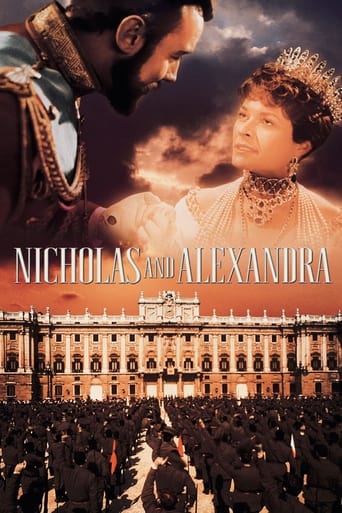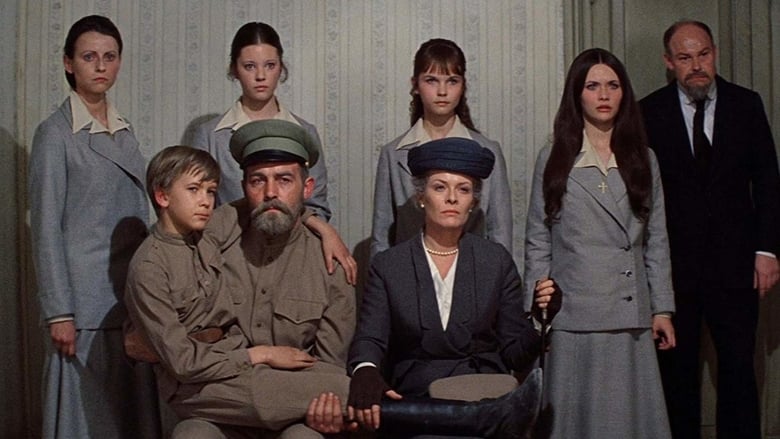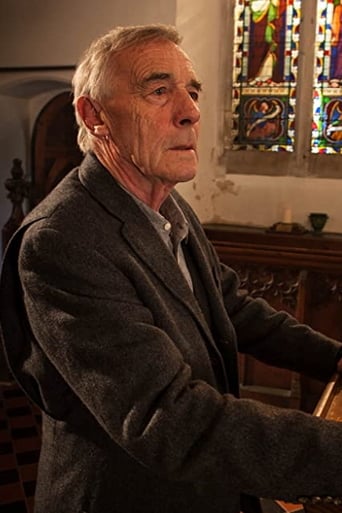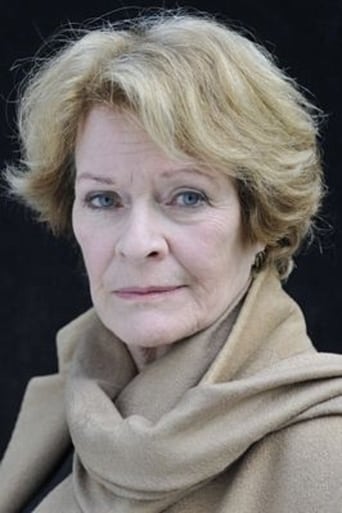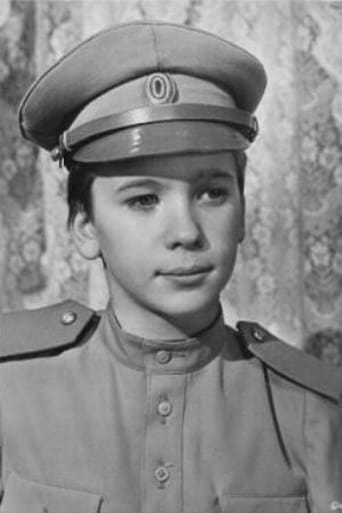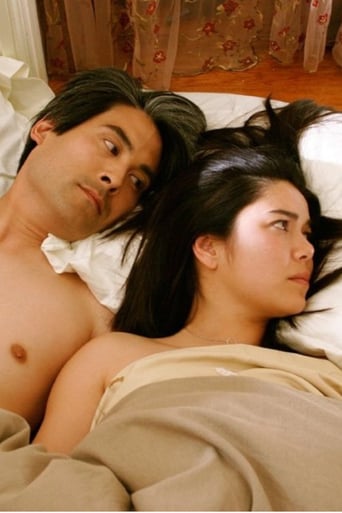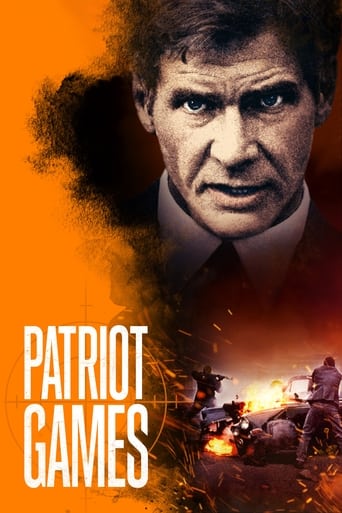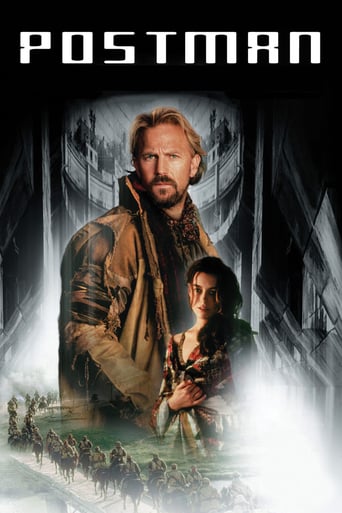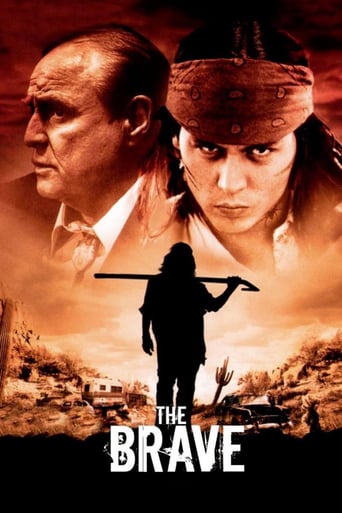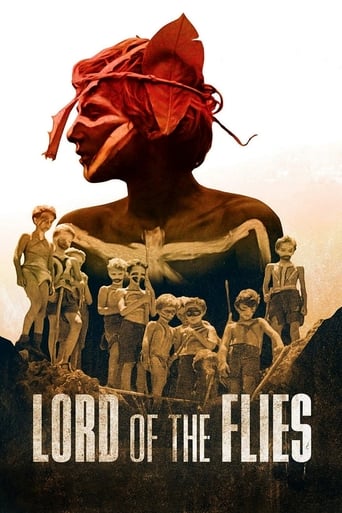Nicholas and Alexandra (1971)
Tsar Nicholas II, the inept last monarch of Russia, insensitive to the needs of his people, is overthrown and exiled to Siberia with his family.
Watch Trailer
Cast


Similar titles
Reviews
It is perhaps because of the legend of the alleged surviving daughter, Anastasia (as well as a spooky priest named Rasputin), that the historical saga of Nicholas and Alexandra is remembered today, but unfortunately, the story of the end of the Russian royal line is cemented only in history, not in culture. This film shows the last years of their reign, the strong love that kept them going in spite of the many trials and tribulations in their marriage that brought a nation to its knees, and their determination to remain strong as they lived in exile. It is a story of family. It is a story of a poverty stricken country where millions of undocumented children died of starvation, leading to a revolution, and then finally, it is the story of a new power rise that is a story all in its own, touched on here by the brief presence of Vladimir Lenin, a Bolshevik leader who founded the Russian Communist party. As played by Michael Jayston and the Academy Award nominated Janet Suzman, it is obvious from the start that Nicholas and Alexandra are truly in love, but the weak-willed Nicholas doesn't really have what it takes to really be a great leader, and the single minded Alexandra has only one agenda: to cure her son Alexi from hemophilia.It was very wise of the casting directors to choose the rather unknown Suzman in the role of Alexandra over a more popular British actress, with both Vanessa Redgrave and Glenda Jackson very busy at the time. She is obviously a loving wife and mother, but as history has pointed out, she never was able to connect with her husband's people. Looking glorious in the lavish gowns, furs and hats (one of which makes an appearance in Alexandra's ghostly state in the Broadway musical version of the animated musical film "Anastasia"), Suzman is a conflict of emotions, often cool with her husband and daughters, and one sighted as she becomes manipulated by the sinister Rasputin (an excellent, multi-dimensional performance by Tom Baker) who soon has the nation in an uproar. Assassinations of other various Russian political figures and the Arch-Duke and Duchess of Austria, show the onslaught of World War I, and the very bitter war between Russia and Germany becomes the catalyst of Nicholas's decision to abdicate, setting into motion his own death sentence.The last hour of this film that shows the royal family in captivity is particularly sad because of the audience's knowledge of where this will lead them to in the final scene. There are moments when it seems that they might make it out, but when even Nicholas's own cousin (King George V of England) must deny him a place of exile, they all seem to know that their destiny is set. The actor playing the crippled guard in their final home might be creepy looking from the first long shot of his appearance, but from my childhood memory, it was the kindness he showed them that stood out which leads to the shocking developments of their final moments. There are great moments of joy where the royal daughters have a snowy Siberian dance with the soldiers guarding them, and yet the sad fate, particularly of the ailing Alexi who shows much more strength in many ways than his own father. Also particularly memorable is the way in which Rasputin is dealt with and the two strong scenes of Irene Worth as Nicholas's mother, a character who would later play an important part in the legend of the allegedly fake Anna Anderson who claimed to be Anastasia. This is a beautiful film which is best seen on a large movie screen or digital TV in its original widescreen format. The costumes, sets, photography, music and editing are all spectacular, and as directed by Franklin J. Schaffner (fresh off his triumph of "Patton"), it is rarely dull in its over three hour length. Certainly, even with the long running time, some of the facts or details seem to be missing, and a few facts have been proven to be altered, particularly the assassination scene which history has shown to be much more brutal than what is presented here. There are so many well known actors in small roles that it is very difficult to really review their participations in it, but such legendary actors as Laurence Olivier, Harry Andrews and Jack Hawkins do deserve at least a brief mention. Nicholas and Alexandra marked the end of an era in the history of any monarchy where their absolute power meant much suffering for the poor and much frivolity for the rich. They might not have the fame of the guillotined Louix XVI and Marie Antoinette of France, but theirs is a story which after seeing this film you will not soon forget.
When I was in high school, I learned about the story of the Romanovs from Russia, most notably the events that led to their execution, which led to several TV series and film versions of those events. Then, a few years later, I came across this movie and decided to check it out after watching the trailer from YouTube. Upon viewing it, I was expecting a really solid film, but from what I've got, it's actually not that bad. OK, it's not one of my favorites, but I'm glad I saw it.Let's start with the positives. The script is really good. It's smart and intelligent in it's interpretation of the Downfall of the Romanov Dynasty during the Russian Revolution and has some really powerful moments particularly the scene where Tsar Nicholas and his son Alexei salute the soldiers of Saint Petersburg before as they march into war against Germany. The directing from the late Franklin J. Schaffner, who directed Planet of the Apes and Patton, is really superb and the photography and productions are well-detailed and gorgeous to look at. Richard Rodney Bennett, who died five years ago on December 24 2012, delivered a unique score that is rousing, dramatic, powerful, and haunting. The best part, however, goes to the actors, who did excellent with their roles. Michael Jayston did a fine job as Tsar Nicholas, a kind and loving father to his family, but also an incompetent ruler, Janet Suzman also did great as the Empress Alexandra, a kind mother, but another incompetent ruler whose chemistry with Michael Jayston and Tom Baker (which we'll get to in a moment) is spot on. Laurence Olivier also did a fine job as Count Witte, but Tom Baker, however, steals the show. Known as the famous Doctor Who, his role as Rasputin is top notch. He balances funny with really intense and shares some of his scenes with Janet Suzman solidly. The rest of the actors, including Ian Holm (who would later play Bilbo Baggins in in the Lord of the Rings trilogy) did a superb job with their limited roles (which isn't a bad thing).That being said, there are some problems that held the film back. First, there's the pacing, which runs at 188 minutes. I don't mind three hour films, but here, it went on for way too long and could've been at least an hour or two. Also, there are some scenes that padded the movie's runtime including having Rasputin be distracted by a man dressed in drag during the assassination sequence and Alexei, Nicholas's hemophiliac son, committing suicide. But the biggest letdown, however, is the ending, which to be honest wasn't as powerful compared to the first 2/3 of the film. It didn't have any drama and what's worse is that it omitted the speech that made the Execution of the Romanovs event so important.To end this review, I don't think it's a failure as everyone makes it out to be, but had those flaws not hold the film back, it would've been a masterpiece. However, the movie is still worth seeing. It's well-acted, It's well-made, and certainly for those who love the history of Russia. Check it out and you won't regret it.
In 1971, the era of the grand epics were over. The last great epic leading up to this year was 1965's Doctor Zhivago. Every once in awhile, an epic will come along trying to repeat the glory of the past. 1971's Nicholas and Alexandria is an example of that. Does this movie succeed in returning to it's former glory? Not quite .but I very much enjoyed this movie, more so than many people it seems. The film has its issues which I'll explain momentarily, but this was a valuable history lesson to those who know little about the Russian Revolution or Czar Nicholas II-the last Czar in Russian history.This movie tells the story, the tragic story of Czar Nicholas II (Michael Jayston) set against the backdrop of the Russian Revolution. This movie goes inside the private life of Nicholas and his wife, Alexandria (Janet Suzman) as well as their daughters and only son. Their son spends most of his childhood crippled with sickness, so the family hire the mysterious Rasputin (Tom Baker) for help in curing him. On the political side of things, Nicholas is very unpopular and is the root cause of seven million deaths because of their involvement in World War I and domestic problems such as starvation. All of these problems has Nick and his family paying the ultimate consequence.This is the second of two movies to have the Russian Revolution as the backdrop. The first film was the big musical hit, Fiddler on the Roof. That movie occurred pre-Revolution. But this film focuses on the causes of the Revolution and the immediate aftermath. Or so it's supposed to. My biggest problem with the film is that it treats the Revolution itself as an afterthought. There are cameos by very important characters such as Lenin, Trotsky, and Stalin-but they hardly had any effect on the film. I wanted to know more about the Revolution itself and how Lenin took over Russia. I can't be too upset because this film is about the life of Nicholas after all. I wish I wasn't tantalized with the scenes of Lenin however.I divided up this epic into two sections. The first section is what I find to be the more glorified, beautiful part of the film. Many epics rely on vast landscapes, but this epic does something a little different. It relies upon vast interior decoration designed to take your breath away. The Russian architecture, especially on the inside is certainly something to behold. The art direction and the production design certainly are incredible in this film. The first part mainly tells us how life is like for Czar and his family despite all the war and suffering going around them. The second half is a different kind of story. It's a sad, painful story that shows how life of the Czar fell apart after the Revolution which culminated in a very sad, but brilliantly-made ending scene showing the execution of Czar Nick and his entire family. Of course as a student of history I knew what happened, but that scene had tears coming from my eyes. Nicholas was not an innocent man, but he tried his best with what he got-but he couldn't get any better.This film was brilliantly-acted. That impresses me because the two lead actors (Michael Jayston and Janet Suzman) never worked in film prior to this film. They were seasoned British stage actors but they made the transition to film really well. If you can get used to Jayston's overreacting facial expressions, you probably will appreciate what he brought to the role as the czar. A man who had a good soul, but is largely blamed for the death of millions. Suzman does an incredible job as his wife, Alexandria who had a role in why Russia was in such bad shape. She sometimes controlled her husband to the point where it seemed like he was a puppet. They had great chemistry with each other, so I was impressed what they did with this film. Tom Baker gives a good performance as the mysterious Rasputin. There is one thing that bothered me about this character. There is a scene where all of the sudden he becomes a homosexual. I'm not sure if history supports that notion, but the way the film showed it out of the blue kind of bothered me. The supporting cast all do well in their roles. Any movie that features Jack Hawkins, Laurence Olivier, Ian Holm, and Brian Cox in the same cast is a good one by my book.Nicholas and Alexandra is quite a fascinating epic. The first half is a movie about style, about grandeur during a time where peasant living conditions were terrible. The second half of the movie is a haunting story of the Czar's downfall. I loved the production design and the film was given an authentic feeling. It must be nice being so rich like the Czar was. The second-half is my favorite section of the film and that final scene is a powerful, very emotionally-driven scene. The story itself was good, but it could have been much better if the actual Revolution was not used as an afterthought. But given this movie seems to be the only one in existence about Czar Nicholas II and his final days, I am very satisfied with this film. Maybe my grade is high because of the powerful last few minutes, but there is no denying this is a good epic that came out in an era where these kind of movies were seen as dead.My Grade: A-
This film is an intimate look at the lives of the last Tsar and Tsarina of Russia, Nicholas and Alexandra Romanov (Michael Jayston and Janet Suzman), however, although it has elements of an epic, it often seems apologetic about it.The story covers the period from the birth of the Tzar's haemophiliac son, Alexei, in 1904 until the brutal murder of the family during the Russian revolution. The causes of the revolution become obvious as the grievances of the people grow and the Tsar becomes more obstinate about relinquishing power.The film is effective in giving us an inside look at the lives of Nicholas and his family. The scenes with Rasputin (Tom Baker) as he works his way into the lives of the royal family are fascinating as are the vignettes of the revolutionaries: Lenin, Stalin and Trotsky as they plot for power. The soul of the movie is in the last half hour as the protective bubble around the Romanovs bursts and they are humiliated and then cruelly eliminated.There was an opportunity for a massive canvas, there are big scenes, but strangely the filmmakers often cut away before they fully develop; the police charge the students, but we cut away as the batons begin to fall; the troops start to open fire on the crowd of protesters, but we cut to the aftermath - an overly self-conscious technique.I remember seeing this back in 1971 and inevitably compared it to David Lean's "Doctor Zhivago". Lean's film caught a sense of the vastness and mystery of Russia from the opening scenes, "Nicholas and Alexandra" rarely does. Of course neither film was made in Russia, but "Nicholas and Alexandra" starts in the royal bedroom without any attempt to establish a sense of place.That introduction sets the static tone of much of the film - although the costumes are lavish, the interiors are photographed in a straightforward manner not unlike a filmed stage play.A good score by Richard Rodney Bennett gave the film a sense of depth and the last part of the film brings home the tragedy as the royal family meet their terrible fate. An austere film in many ways, it does however give an insight into a world-shaking time in history.

